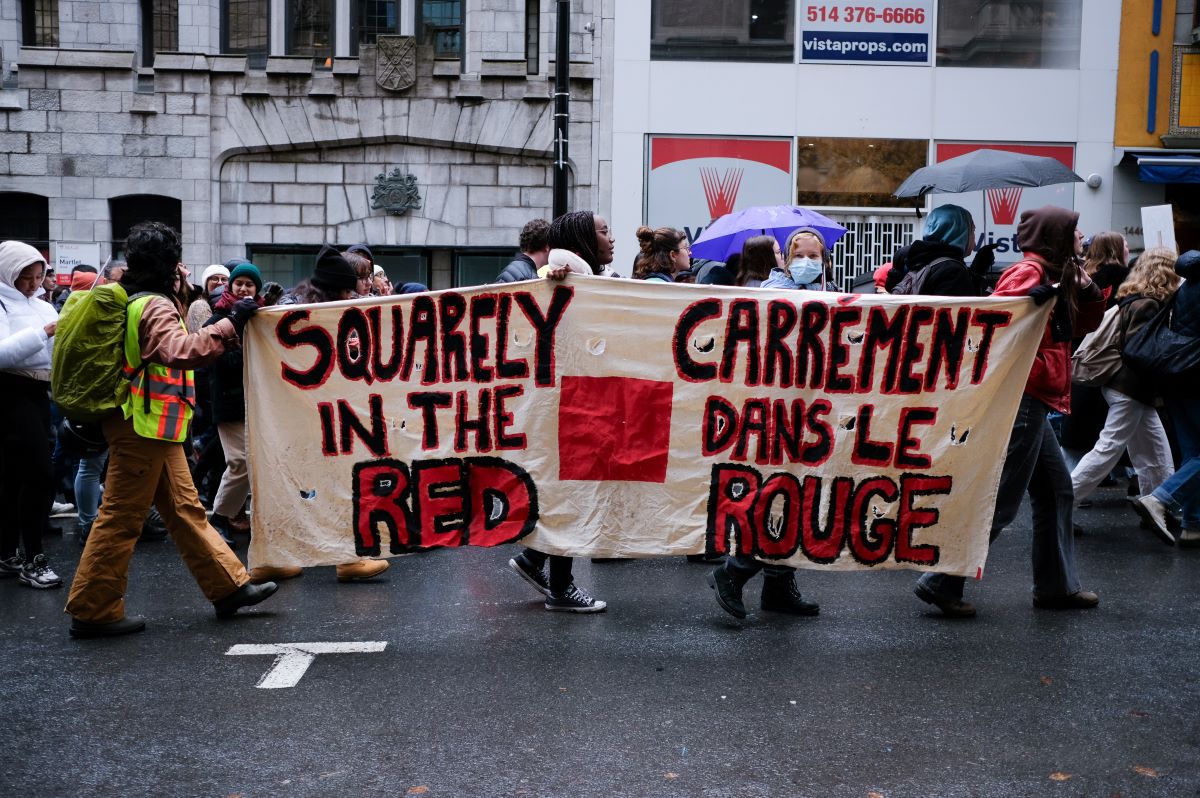Mobilization against tuition hikes continues with multiple student groups moving to strike on Nov. 30.
The Geography Undergraduate Student Society (GUSS) moved in unanimous support to block access to classrooms in accordance with a “hard picket” on Friday, Nov. 30 against the tuition hikes for out-of-province and international students.
Another student protest is set to happen on the corner of De Maisonneuve and McKay at 12 p.m. on Nov. 30. The movement is currently supported by the CSU, ASFA and the McGill student associations.
The tuition hikes will raise tuition for out-of-province students from around $9,000 to $17,000. For international students, the government will charge universities $20,000 per international student outside of France and Belgium. Concordia has now started a page for FAQs and the implications of the tuition changes.
In a general meeting open to all members of the geography undergraduate program on Nov. 17, GUSS moved to block the entrances of geography classes on Nov. 30 as an action of hard picketing. They will be accompanied by a number of other student associations including the Fine Arts Student Association (FASA), the Urban Planning Association (UPA) and the School of Community and Public Affairs Student Association (SCPSA) among other MAs in defiance against tuition hikes.
“I found a program here that I really like, and I’ve found a community and a city I really like,” said Max Neumann, a student on the GUSS mobilization committee.
Neumann is from British Columbia and was looking to pursue a masters degree in Quebec, but will not be able to because of the tuition increases. She said that Concordia’s opportunities for geography students are unique to the university and that many students will be pushed into programs in Ontario because of the tuition hikes.
Some students have expressed concern with what they will potentially lose out on by not attending the classes that they paid to attend, but GUSS is lobbying to make sure that the effects of the hike on the students will not be detrimental.
Jackson Esworthy, a GUSS executive, said that a lot of the faculty informally supports student action against tuition hikes since this will affect the faculty and Concordia will see cutbacks in funding. They have not seen information from Concordia on which will be the most impacted programs nor any specific reports per program.
Students have a long history of successful student strikes in the province of Quebec. Esworhty added that GUSS was one of the first student associations in the province to lead the strike against the increased tuition. “That [strike] started at Concordia on the MA level,” Esworthy said about the 2012 “Red Squares” strike against the increase of tuition.
In 2012, students across Quebec mobilized against tuition increases posed by Jean Charest’s Liberal Party at the time to increase tuition by $325 every year from 2012 to 2017. Thousands of students across Quebec took to the streets to participate in the longest general unlimited strike in Canadian history.
As for the current tuition increases, weekly meetings are held with Concordia’s student groups as well as groups from other universities across Montreal including McGill and UQAM to maintain a front of solidarity and to work together to hold student strikes.
UQAM’s ASFA equivalent, Association Facultaire Étudiante des Sciences Humaines de l’UQAM (AFESH), told The Concordian that they “offer solidarity to student associations of English universities,” but offered no comment about whether they were participating in the strikes on Nov. 30.
The strikes on Nov. 30 will not be the last. The ASFA is moving to host a three-day strike from Wednesday, Jan. 31 to Friday, Feb. 2.
